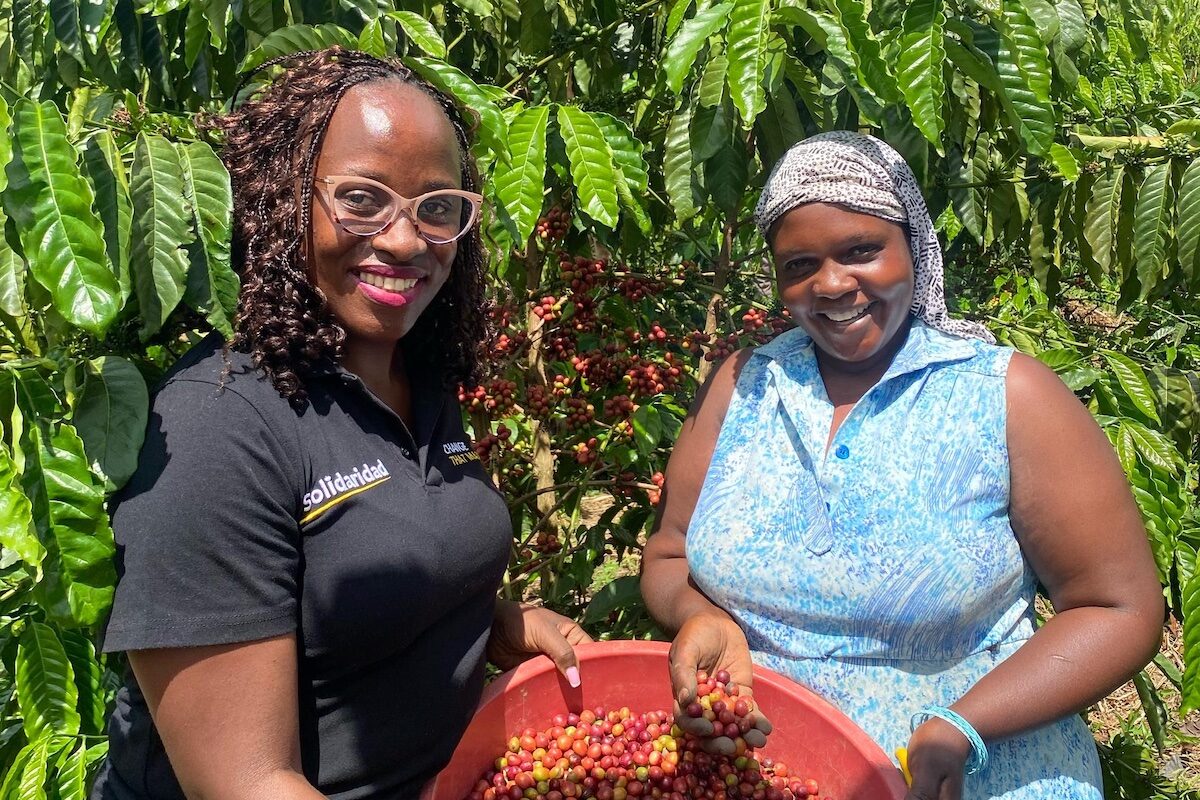Flaviah Koyesiga Birungi, the Solidaridad Uganda Project Manager for the Harvesting Carbon initiative, works with Ugandan coffee farmers.
In a major step toward climate leadership in East Africa, Solidaridad East and Central Africa has strengthened its technical expertise through the certification of Cool Farm Advisors (CFAs). This milestone enhances our capacity to support small-scale farmers with science-based tools that reduce greenhouse gas (GHG) emissions and foster more resilient, sustainable agricultural systems in Uganda and across the region.
“This certification is a pivotal step in deepening our technical leadership. It equips our team to deliver scalable, data-driven solutions that not only reduce emissions but also build the resilience and economic opportunity of small-scale farmers navigating a changing climate,” says Alex Amanya, the Solidaridad Country Manager for Uganda.
At the core of this achievement is the Cool Farm Tool, an online sustainability calculator developed by the Cool Farm Alliance. The tool helps farmers and supply chain actors to measure and manage their environmental footprint—specifically GHG emissions, water use, and biodiversity—using metrics aligned with Intergovernmental Panel on Climate Change (IPCC) standards. While downstream emissions are typically easier for companies to track, this tool fills a critical gap, and allows producers to contribute meaningfully to climate targets.
By building in-house expertise on the Cool Farm Tool, Solidaridad can now translate climate data into action. Our 17 newly certified advisors can provide tailored, climate-smart recommendations that contribute towards emission reduction, performance optimization, and alignment with emerging sustainability standards.
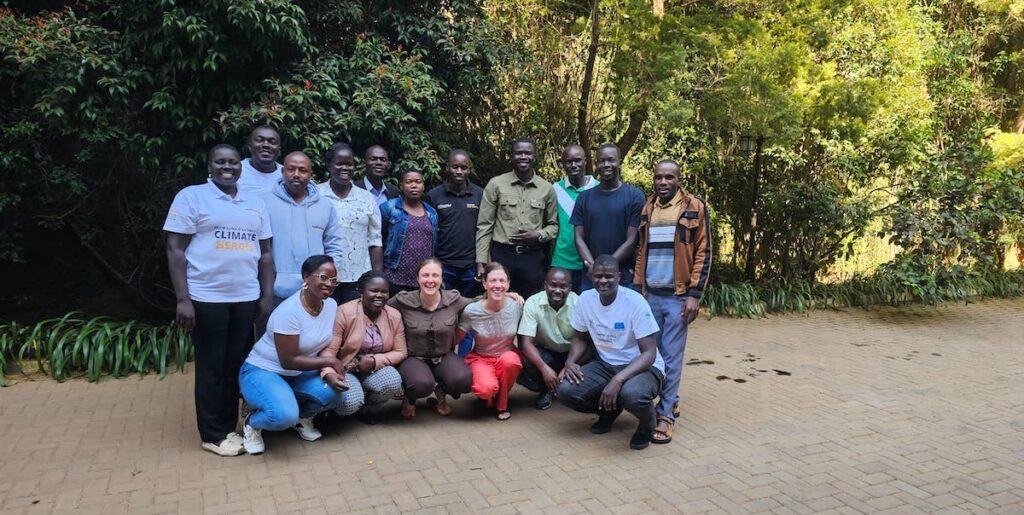
The new advisors and the use of the Cool Farm Tool will not only support farmers, but will strengthen our support for private sector actors working toward Scope 3 emission reductions and deepen climate intelligence across various value chains.
The tool’s dynamic reporting and scenario modelling capabilities offer clear, actionable insights for both farm-level and organizational decision-making. With improved emissions tracking, farmers can explore opportunities to participate in carbon markets and access green finance, transforming climate action into a tangible opportunity.
Beyond carbon, the data-driven insights also support better farm management, increased productivity, cost savings, and improved market access, contributing to stronger, more resilient rural economies.
Building low-carbon value chains through climate intelligence
Looking ahead, our certified advisors will be instrumental in expanding this work across farming communities and supply chains. Their expertise will help to conduct robust environmental impact assessments, support corporate partners in aligning with evolving regulations such as the EU Deforestation Regulation (EUDR) and the Corporate Sustainability Due Diligence (CSDD) directive, and ensuring Solidaridad remains a trusted partner in building responsible, low-carbon value chains.
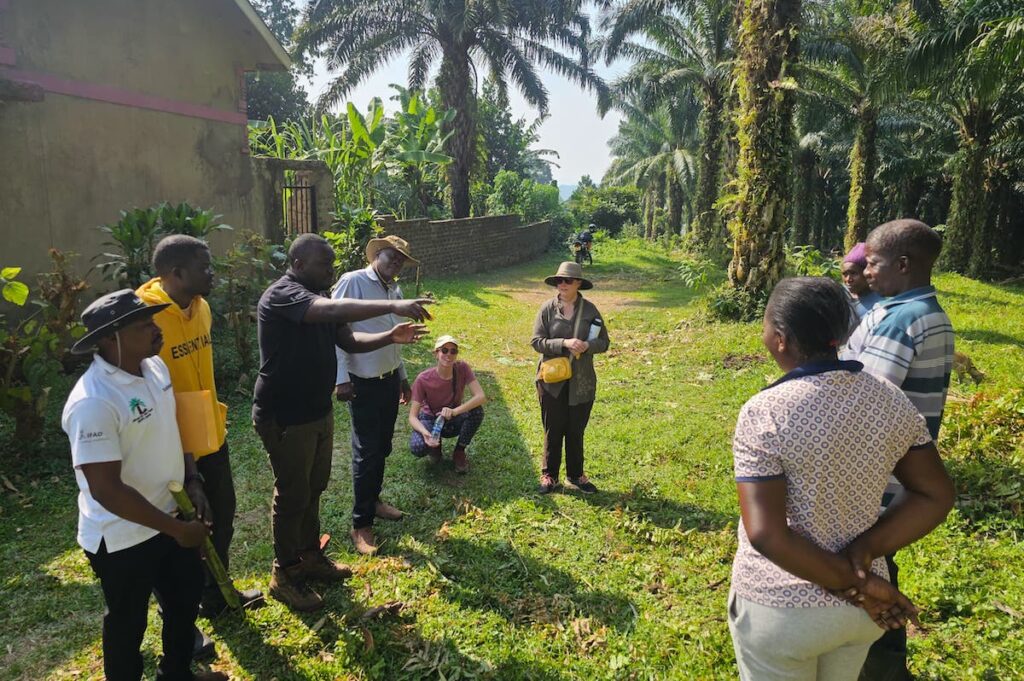
This certification process also qualifies our team to lead GHG assessments, deliver targeted training, and support partners in establishing Scope 3 emissions baselines. So far, Solidaridad has already conducted assessments using the Cool Farm Tool in cocoa, coffee, and oil palm production systems in Uganda, laying the groundwork for data-driven climate action.
“As a certified Cool Farm Advisor, I am excited to guide farmers in adopting more sustainable practices, especially in managing fertilizer and crop residue emissions, as we have seen in our assessments across Central and Southwestern Uganda,” says Flaviah Koyesiga Birungi, the Solidaridad Uganda Project Manager for the Harvesting Carbon initiative.
Insights from the field: Mapping emissions hotspots in coffee
Initial GHG assessments of 561 small-scale coffee farmers across Central and South Western Uganda revealed key emission hotspots. In South Western Uganda, emissions averaged 132 tCO₂eq/ha driven primarily by crop residue burning (90 percent), while Central Uganda reported a much lower footprint of 22 tCO₂eq/ha, with fertilizer use accounting for 69 percent of emissions. The overall average stood at 77 tCO₂eq/ha, highlighting the need for location-specific interventions. Major emission sources identified include residue burning, inefficient fertilizer use, and transport.
These insights are shaping targeted interventions. Through our Danida-funded Harvesting Carbon project, Solidaridad and its partners are promoting better residue management (like composting and biochar), precision fertilizer application, and low-emission logistics. Combined with ongoing capacity building, farm-level monitoring, and access to carbon markets, farmers are not only reducing emissions but also building stronger, future-ready farming systems.
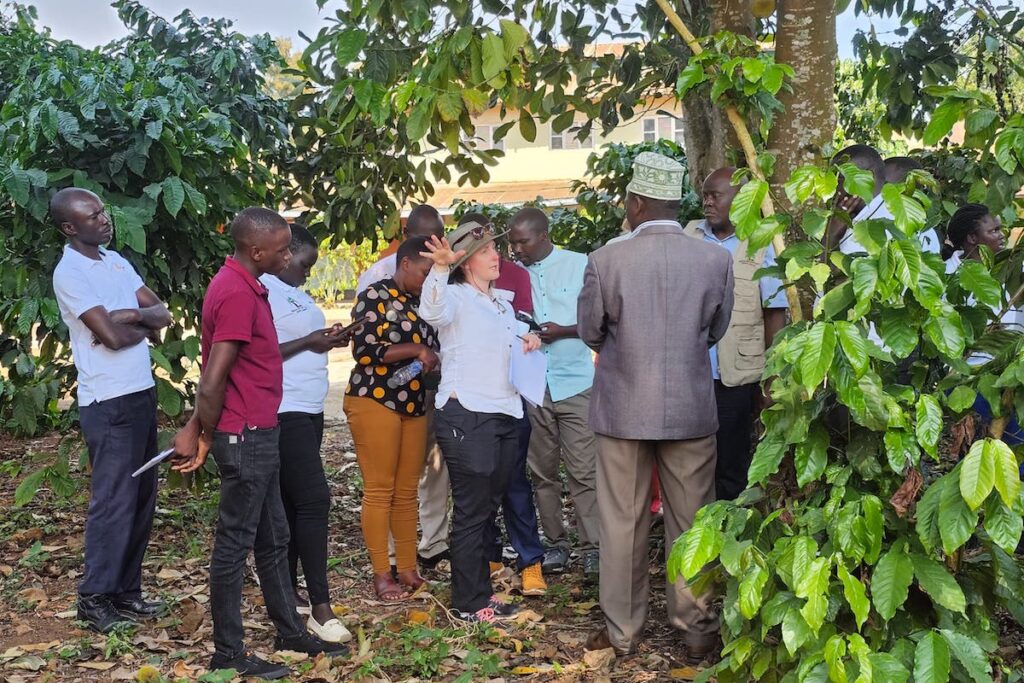
Alex Amanya notes that, “This certification significantly strengthens our capacity to support partners in understanding their environmental impact and implementing strategies for a more sustainable future. We look forward to working with companies in coffee, cocoa, tea, and palm oil to build the case for low-carbon production.”
Driving low-carbon agriculture in East Africa
Across East Africa, Solidaridad’s broader carbon farming strategy is advancing climate change mitigation and adaptation through innovative, farmer-centered climate resilience initiatives. In Kenya and Uganda, the Climate Heroes project is supporting thousands of small-scale coffee farmers to integrate agroforestry practices that capture carbon and generate income through verified credits. In parallel, the Harvesting Carbon project is piloting an innovative pay-for-impact model that rewards farmers based on quantifiable GHG reductions.
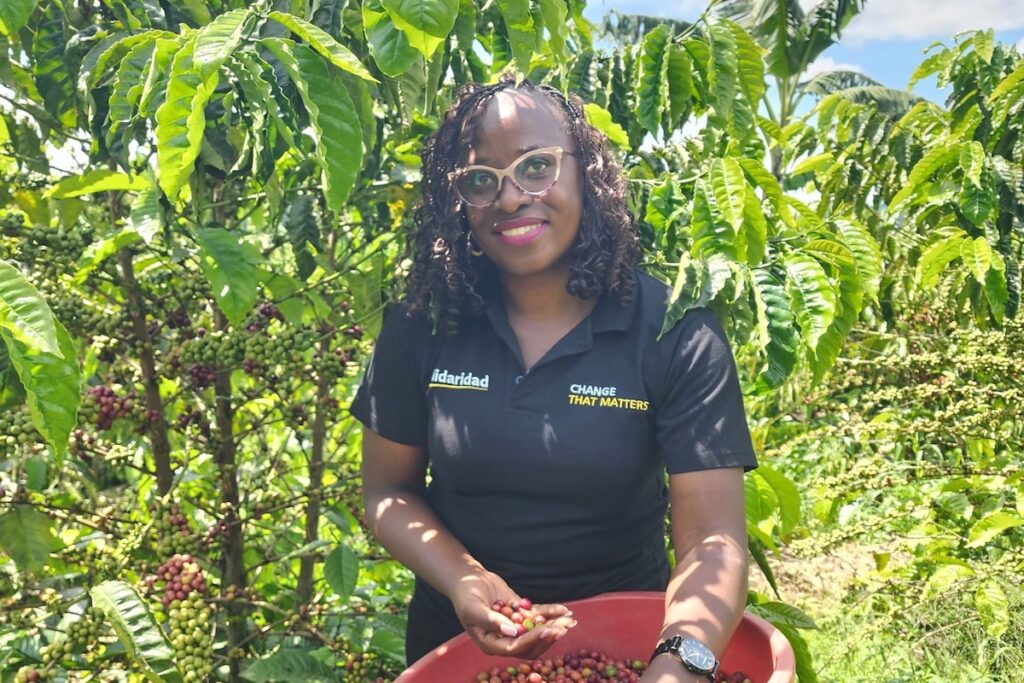
Together, these efforts reflect Solidaridad’s deep commitment to positioning agriculture as a climate solution—one that improves farmer livelihoods, restores ecosystems, and helps supply chains to meet global climate and sustainability goals.
We are proud to celebrate our 17 newly certified advisors who are supporting farmers and private sector partners in building a low-carbon, climate-resilient future that unlocks new opportunities.
Interested in partnering with us?
Get in touch to explore how your organisation can support sustainable agriculture and climate action in East Africa.
Rachel Wanyoike, Managing Director, East and Central Africa

